Look what they’ve done to my Hall Fame, ma.
Out of nowhere, Harold Baines received a Hall pass with 2,866 hits, 384 home runs, 1,628 RBI, zero Gold Gloves and zero World Series titles. Now it’s the Hall of Kinda Good.
Far worse, suspected steroids-users have seen their vote totals rise up, up, up, while the ages of the voters and their attention to history and precedent have gone down, down, down. A few cheaters even snuck into Cooperstown.
Now compare those developments to the stated Baseball Writers Association of America standard: “Voting shall be based upon the player’s record, playing ability, integrity, sportsmanship, character and contributions to the team(s) on which the player played.”
Here are the best baseball players not in the Hall of Fame.
Bottom Line: Roger Clemens
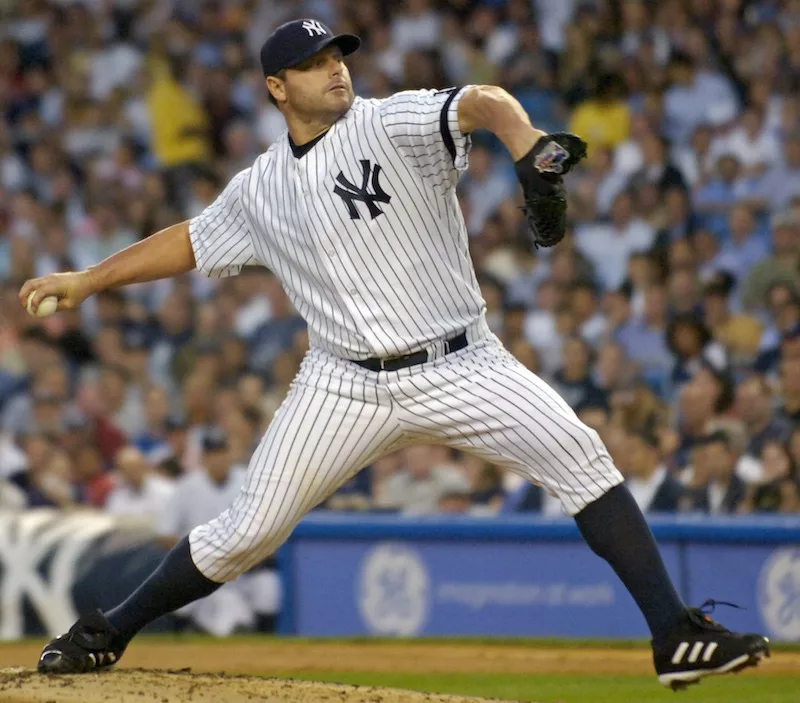
Roger Clemens delivers the ball for the Yankees against the Red Sox in 2007. Bill Kostroun / AP Photo
If I had a hundred bucks for every time I heard a suspected steroids loser say “never, ever,” I’d have almost enough money to buy a box seat ticket and a Dodger dog.
Roger Clemens said words to that effect, most infamously as a defendant in a defamation lawsuit filed by his former trainer. Among other things, the career 354-game winner claimed that steroids hurt performance, not the other way around. Even more remarkably, he did this with a straight face.
Remember, this is the same Clemens who had a 1.87 earned run average in the 2005 season. At age 42. One year after he won 18 games. And the Cy Young Award.
Bottom Line: Alex Rodriguez
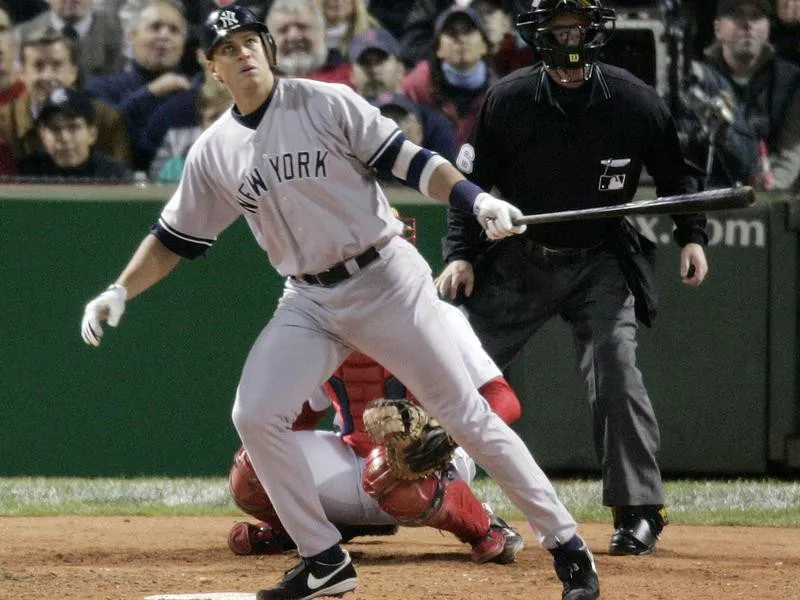
Alex Rodriguez hit 696 home runs in his career. Amy Sancetta / AP Photo
Alex Rodriguez hit a bunch of home runs and knocked in a bunch of runs and won a bunch of awards in his career. Never mind that. His most impressive accomplishment was the way he conned the public all those years. Or tried to, anyway.
The thing is, Rodriguez can sweet-talk the chrome off a hubcap. Since his steroids admission, the first-ballot member of the Chronic Liars and Cheaters Hall of Fame has done his best to put his dirt back in the tube.
Smart guy, that A-Fraud. He knows fake humility and repentance are his only tickets to Cooperstown. Fans and Hall of Fame voters can be a forgiving lot, so don’t be surprised if he fools them again one day.
Bottom Line: Nomar Garciaparra
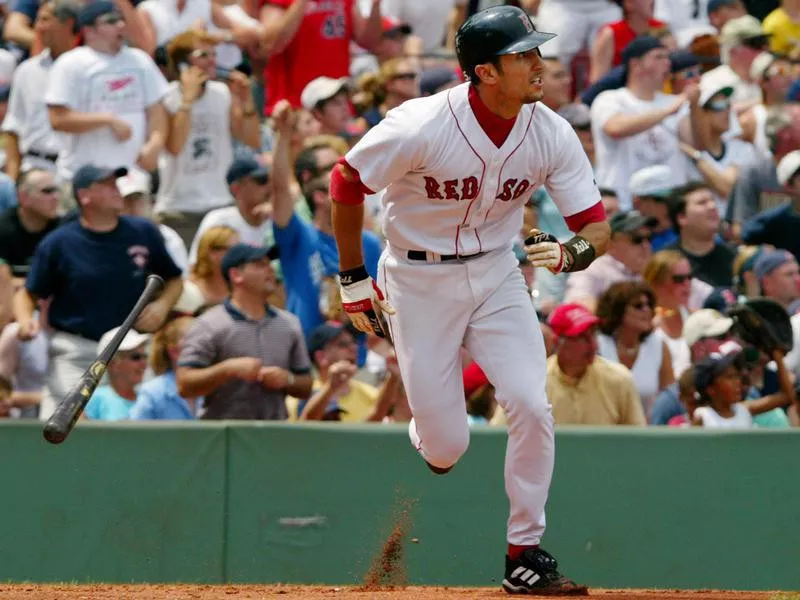
Nomar Garciaparra hits a two-run home run against the New York Yankees at Fenway Park in 2003. Winslow Townson / AP Photo
No sooner did Nomar Garciaparra arrive in Boston than he was on a meteoric Hall of Fame path. In his first four full seasons, he was a three-time All-Star and back-to-back batting champion. From that point on, Garciaparra was a physical wreck, a career u-turn that prompted suspicious minds to connect the dots.
The steroids whispers grew in the spring of 2001, when a suddenly ripped Garciaparra opened eyes on a Sports Illustrated front cover. That season, he was limited to 21 games because of a wrist tendon surgery. Three years later, a gruesome groin injury grounded him again. He retired at 35 with 1,747 hits, 229 homers and 4.99 WAR/162, 11th best at shortstop.
Garciaparra said a rigorous workout regimen was the reason for his physical makeover. He never flunked a drug test. Nor was he mentioned in the Mitchell report. This much is certain: Only he knows what might have been.
Bottom Line: Barry Bonds
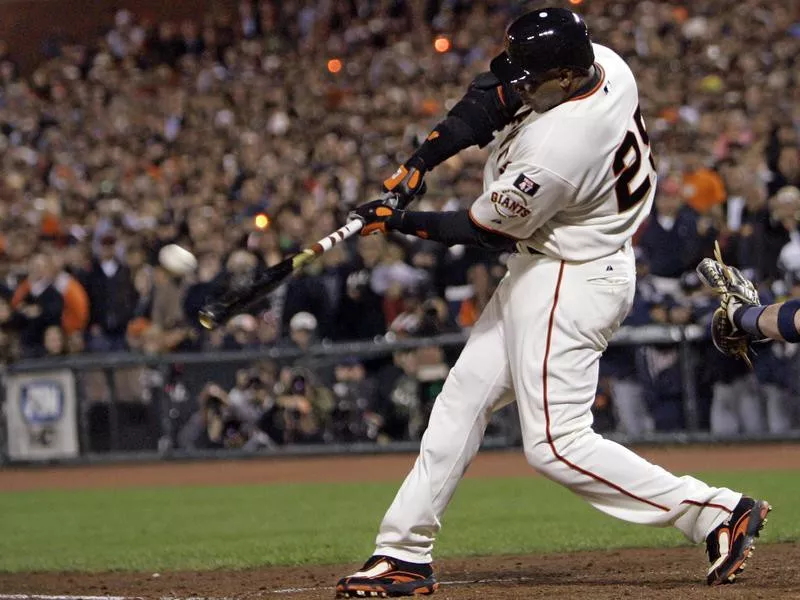
Barry Bonds hit 762 home runs in his career. Jeff Chiu / AP Photo
I won’t bore you with his PEDs-stained numbers. You know all about them by now. (One-hundred-twenty intentional walks in one season? At 39 years old? Really?)
The truth is, any narcissist who makes a joke of the game to the extent that Barry Bonds did all those years shouldn’t be allowed in the Cooperstown zip code. Seriously, can you think of any person who has done more to destroy the integrity of the game than this bum?
(Yeah, I know, Bonds never flunked a drug exam. But after he left Pittsburgh, he never, ever passed the eye test, either.)
Yet “Barry Quite Contrary” has seen his Hall of Fame approval rate increase in each of the last four years to 60.7 percent. Like Clemens, it could take a while, but expect Bonds and his sellouts to have their day yet.
Bottom Line: Charlie Keller
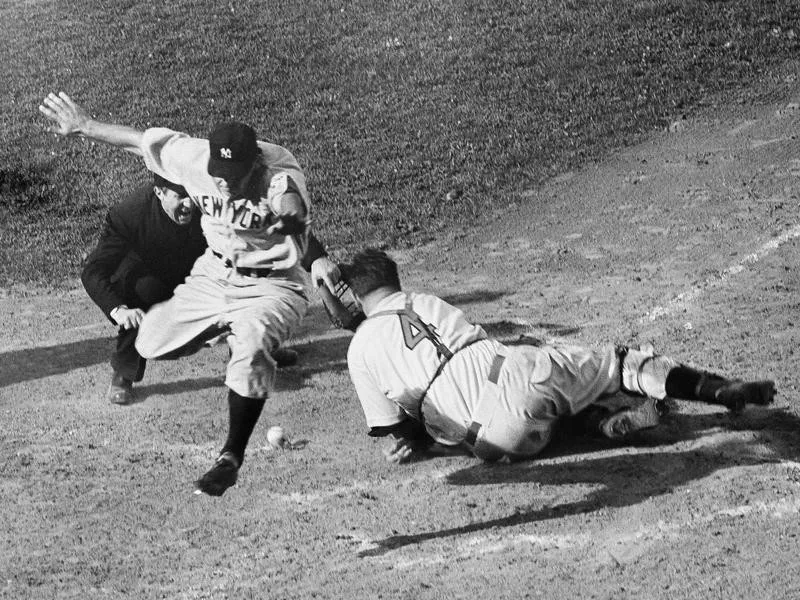
Charlie Keller scores for the New York Yankees in a 1939 World Series game against the Cincinnati Reds. AP Photo
“King Kong” Keller (is that a Hall of Fame name or what?!) took part in only 1,170 games — he spent one prime year in the military and three others with a herniated disc — but his career ranks make you go, “Wow.” He’s 34th in on-base percentage (.410), 44th in OPS (.928) and 40th in range factor (2.14) on the all-time list.
Bet you didn’t know this: Charlie Keller’s career 5.95 WAR/162 ranks behind only Bonds and Ted Williams in left field. That’s right — ahead of Rickey Henderson, Ralph Kiner, Fred Clarke and Al Simmons, the Hall of Famers next in line.
Keller was a postseason difference-maker as well. If there had been a World Series MVP award at the time, he would have been the runaway winner in 1939 and a close second to future Hall of Famer Joe Gordon two years later.
Keller didn’t put up big enough numbers to meet the Baines standard, but based on short-term excellence, the five-time All-Star deserves more than token consideration.
Bottom Line: Kenny Lofton
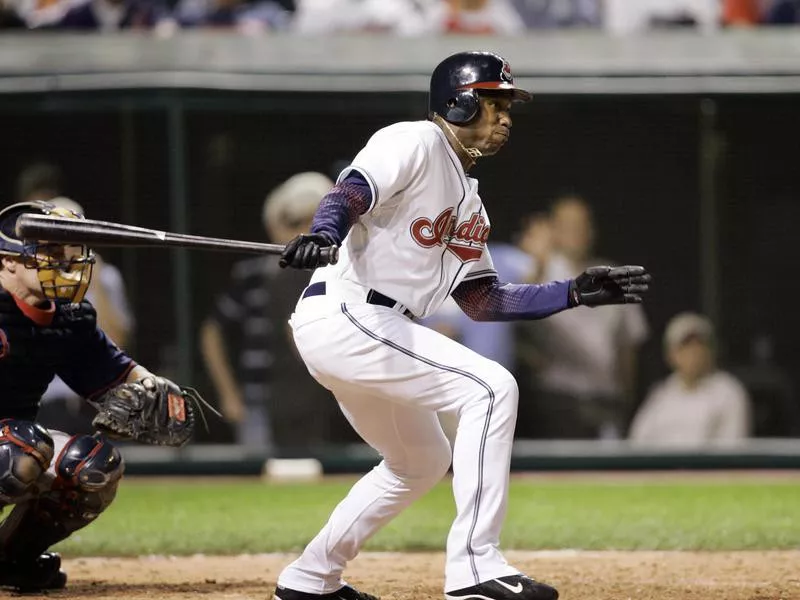
Cleveland Indians center fielder Kenny Lofton smacks a single against the Minnesota Twins in 2007. Tony Dejak / AP Photo
At his peak, Kenny Lofton was akin to the left-handed Rickey Henderson as the best leadoff man in the game. For six consecutive seasons (1994-99) with two teams in both leagues, Lofton was an All-Star selection. He also was a Gold Glove candidate and received MVP votes.
Among center fielders, Lofton owns a 5.5 WAR/162. That’s better than Ken Griffey Jr., Duke Snider, Richie Ashburn and Kirby Puckett, all Hall of Famers.
If Baines is the Hall of Fame basement, then Lofton is closer to the loft.
Bottom Line: Gary Sheffield
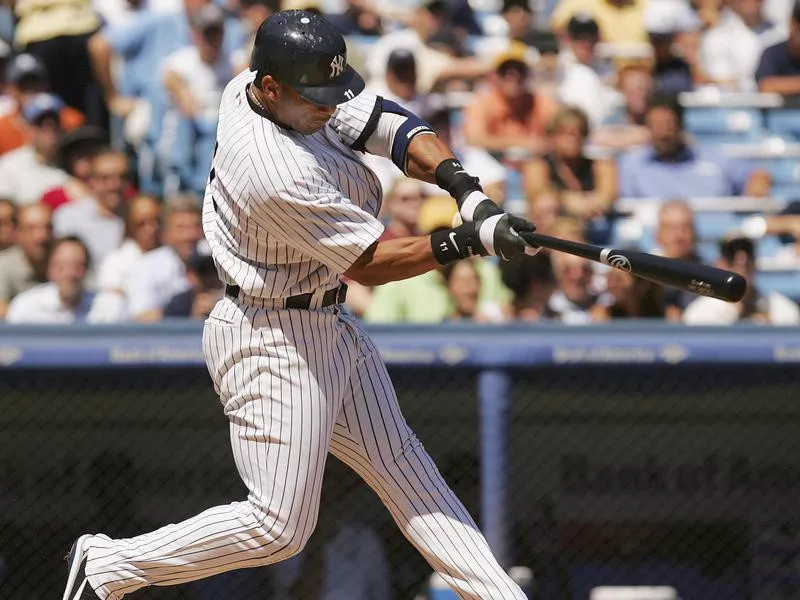
New York Yankees right fielder Gary Sheffield hits a three-run home run against the Toronto Blue Jays in 2005. Julie Jacobson / AP Photo
Gary Sheffield never had any trouble finding work. Or ruffling a few feathers. It’s one reason why he played on eight different teams. The other is that he could flat-out rake. In 2,576 career games, he posted 509 home runs, 2,689 hits and 1,676 RBI with a .292/.393/.514 slash line.
If there’s a place in Cooperstown for Larry Walker — who got his Hall ticket punched with 383 home runs, 2,160 hits, 1,311 RBI and a .313/.400/.565 line — Sheffield also deserves a spot.
His name in the Mitchell report didn’t help, but voters are warming to the idea. Sheff got 30.5 of the vote in 2020, his sixth year on the ballot, more than double his previous highest vote tally of 13.6 percent in 2019.
Bottom Line: Don Baylor
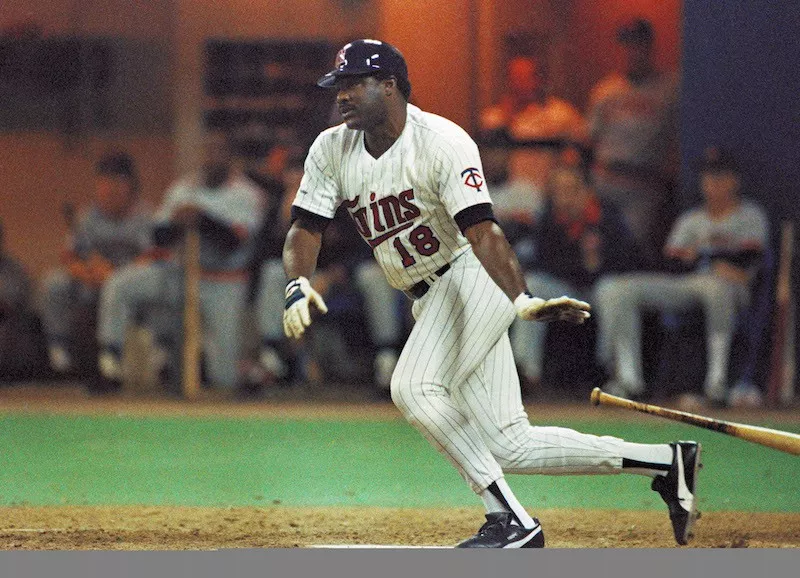
Don Baylor helped the Minnesota Twins win a World Series in 1987. Rusty Kennedy / AP Photo
Don Baylor lasted only two years (1994-95) on the regular Hall of Fame ballot — he received a mere 2.6 percent of the vote both times. But that was long before the Baines standard went into effect.
Baines had a higher batting average (.289-.260), more hits (2,866-2,135), home runs (384-338) and RBI (1,628-1,276) among them. But it took 1,691 plate appearances or roughly three more seasons to do it.
Consider that Baylor stole significantly more bases (285-34) and scored almost as many runs (1,236-1,299), not to mention earned more Silver Slugger awards (3-1), Most Valuable Player awards (1-0) and World Series rings (1-0), and the difference was rather minimal.
Bottom Line: Danny Murtaugh
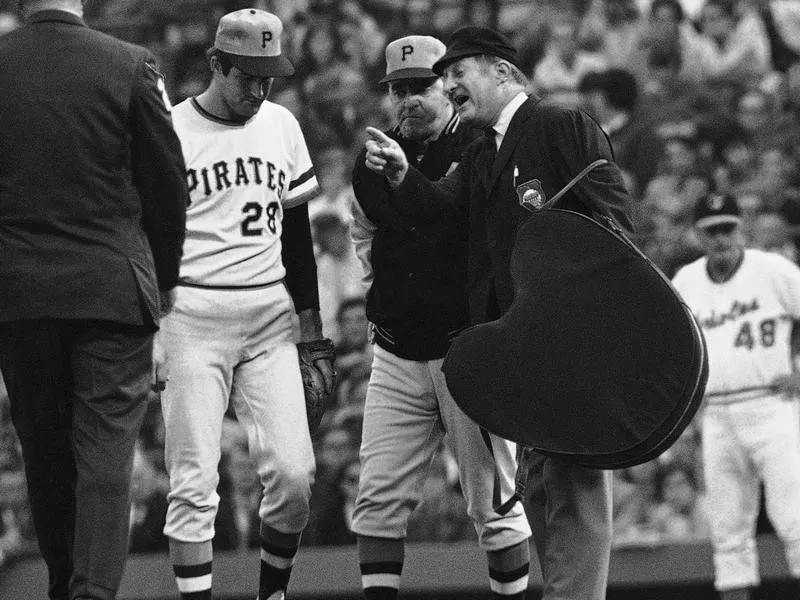
Pittsburgh Pirates manager Danny Murtaugh, center, talks with umpire Nestor Chylak during the 1971 World Series against the Baltimore Orioles. AP Photo
Danny Murtaugh was Earl Weaver without the profanity-laden tirades, crazed hat tosses and frequent ejections. The two had somewhat comparable resumes — and Murtaugh managed in nearly three fewer seasons. Why, he even looked like a pirate.
The Pirates won 54 percent of their games and pulled off two of the biggest World Series upsets ever with Murtaugh at the helm. In 1960, they shocked the mighty Yankees in seven games, and 11 years later, they beat the unbeatable Orioles, who were managed by Weaver himself.
Murtaugh is the only manager with at least five postseason and three-All-Star appearances and two World Series titles not in Cooperstown today. If Weaver is in the Hall of Fame, Murtaugh should be, too.